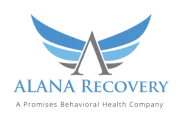You’re not alone if you’ve ever reached for a drink to take the edge off. For many, alcohol can feel like a quick way to calm anxious thoughts. But here’s the thing: over time, alcohol can actually make anxiety worse. The connection between alcohol and anxiety is vital to understand—it’s often the first step toward breaking free from substance use or addiction.
At ALANA Recovery, we’re here to help. As one of Georgia’s top outpatient rehab centers, we support people who are dealing with both substance use and mental health challenges. Whether you’ve been struggling with anxiety for years or recently noticed your drinking starting to affect your life, dual diagnosis treatment could be the solution to help you heal and move forward. You don’t have to do this alone—we’re here for you. Call 770.759.7474 or reach out online today to get started—your first step to a life after narcotics and alcohol (ALANA) can begin right here.
Understanding the link between alcohol and anxiety
Alcohol is a depressant that affects the central nervous system (CNS). While it might temporarily relax you, it interferes with your brain chemistry in ways that can heighten anxiety over time. This is especially true after the initial effects wear off, leading to a rebound of nervousness, restlessness, or panic. People often drink more to cope with that feeling—unknowingly creating a harmful cycle.
According to the National Institute on Alcohol Abuse and Alcoholism (NIAAA), 20% to 40% of people treated for anxiety disorders also struggle with alcohol use disorder (AUD).1 That overlap matters because it points to how often alcohol and the brain interact in ways that contribute to both emotional distress and addiction.
What are the signs of alcohol abuse?
If you’re wondering whether your alcohol use has become problematic, consider how it shows up in your daily life. Alcohol abuse can sometimes be subtle, especially in the early stages. Here are some things to watch out for:
- Drinking more than you planned or for longer than you intended
- Trying to cut back but feeling like you can’t
- Losing interest in hobbies or activities you used to love
- Turning to alcohol to deal with stress, anxiety, or challenging emotions
- Feeling shaky, irritable, or having trouble sleeping when you’re not drinking
- Struggling to keep up with work, school, or home responsibilities because of drinking
If these signs feel familiar, it may be time to consider professional addiction treatment. ALANA Recovery is here to help you take those first steps with compassionate care in a supportive setting.
How are alcohol abuse and the brain connected?
The relationship between alcohol and the brain is complex. Alcohol messes with brain chemicals like serotonin and gamma-aminobutyric acid (GABA), which help control your mood and stress. At first, it might make you feel relaxed or even happy, but over time, your brain adjusts. This can leave you feeling more anxious, depressed, and emotionally drained in the long run.
Heavy or frequent drinking can also shrink areas of the brain that help regulate decision-making and emotions. That’s why people who misuse alcohol often find it harder to manage stress or make healthy choices. These neurological changes not only worsen anxiety but also increase dependence on alcohol as a coping tool.
Can AUD co-occur with an anxiety disorder?
Yes, it happens more often than you might think. When someone struggles with both anxiety and AUD, it’s known as having co-occurring conditions. It can make recovery more challenging because focusing on one issue without addressing the other can lead to setbacks. That’s why dual diagnosis treatment is necessary—it helps tackle both problems. It looks at how alcohol and anxiety interact, providing an integrated path forward that considers the full picture of your health—not just one part of it.
ALANA Recovery understands the specifics of substance use disorders and how deeply they intertwine with mental health. Whether you’re facing panic attacks, chronic worry, or social anxiety, we’re here to support your healing from both ends.
How dual diagnosis treatment can help
At ALANA Recovery, we understand that dual diagnosis is about more than just managing symptoms. We’re here to support you with care that meets you where you are. We help you build a foundation for lasting wellness by blending proven therapies with compassionate support.
Some of the key components of our dual diagnosis approach include:
- Medication-assisted treatment (MAT): Offers support for stabilizing moods and reducing cravings, helping you feel more in control.
- Cognitive-behavioral therapy (CBT): A way to uncover and understand thought patterns that may be fueling anxiety and alcohol use so that you can create healthier habits.
- Group and family therapy: Creates a space to connect and rebuild meaningful relationships with the people who matter most.
- Trauma-informed care: Many people use alcohol to mask trauma. We provide a safe space to explore and process those experiences.
All of this happens in an outpatient setting where you can heal while still maintaining your daily routines. ALANA Recovery is ready to support you through compassionate care and personalized treatment options.
Take your next step with ALANA Recovery
Alcohol and anxiety don’t have to control your life—and you don’t have to figure it out alone. At ALANA Recovery, a Promises Behavioral Health company, we offer real help for people ready to take their next step. We know recovery isn’t always linear, but with the right support, you can move forward.
If you’re in Georgia and looking for real support with mental health or substance use, we’re here to help. At ALANA Recovery, we’re more than just an outpatient rehab—we’re a community focused on healing, connection, and hope. Whether you want to reach out to us online or give us a call, we’re here to talk. Taking that first step toward a life after narcotics or alcohol can feel tough, but you don’t have to do it alone. We’re ready when you are.
Footnote:

